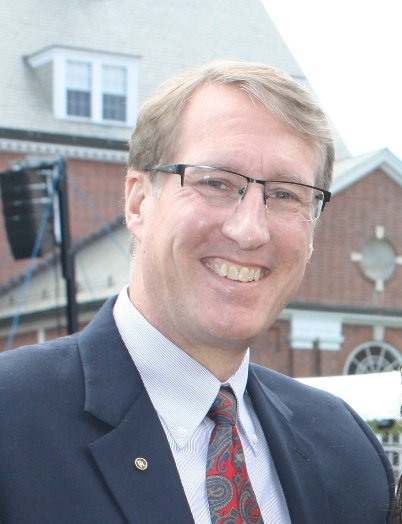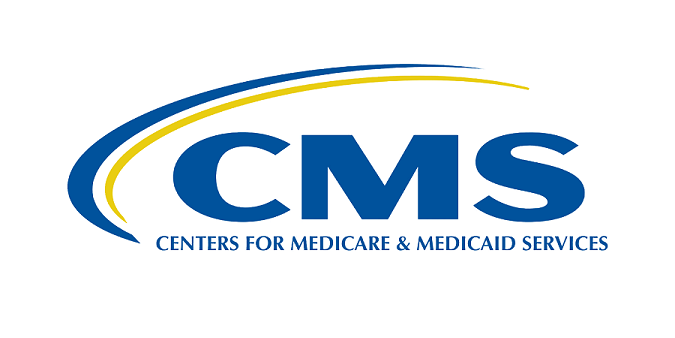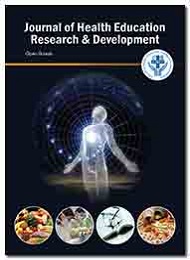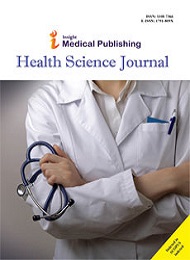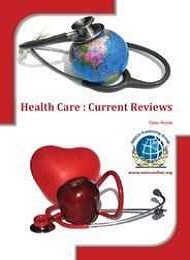Theme: Integrating Medical & Social Science approaches to improve Community Health and Healthcare delivery Systems
Medical Sociology 2017
WELCOME MESSAGE
Medical Sociology and Community Health Congress 2017
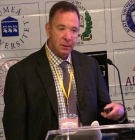
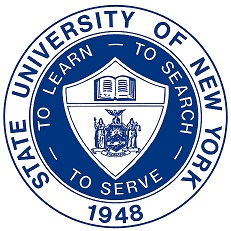
Dear Fellows:
As a member of the Organizing Committee for the 2nd World Congress on Medical Sociology and Community Health (Medical Sociology 2017) in Atlanta, Georgia, USA from September 25-26, 2017, it is my pleasure to welcome you to this prestigious event.
We believe that the future of health and medical sociology research is extremely promising. My own special area of interest is in the social dimensions of HIV/AIDS in the United States, Europe, and Africa.
Medical Sociology and Community Health Congress 2017 depends on the contributions of experts who can share their research effectively with their colleagues. It is designed to promote open, transparent, and international scientific exchange on the “innovating, collaborating, and partnering for creating healthier communities.” It will contribute to the improvement of efforts taken to tackle local, national, and global impacts of health and medical sociology.
Therefore, it is very useful to bring together experts from the fields of medical sociology, medical anthropology, healthcare, nursing, public health, epidemiology, and others for discussions of the latest developments and ideas, and to stimulate interdisciplinary interactions.
Atlanta, the headquarters of the Centers for Disease Control and Prevention (CDC), is a superb location for our Congress. I think you will find this to be a most exciting city. This Congress should also be an excellent opportunity for successful networking with colleagues from all over the world.
Once again, I am delighted to invite you to take part in this conference, and also to make this event a great success. We look forward to meeting you in Atlanta at the 2nd World Congress on Medical Sociology and Community Health 2017.
Looking forward meeting you all in Atlanta this September
With Best Wishes,

Douglas A. Feldman, Ph.D.
Organizing Committee Chair | Medical Sociology 2017
Professor Emeritus of Anthropology
The College at Brockport,
State University of New York, USA
Hear Explore and learn the latest research. Present before distinguished global audience. Collaborate, build partnerships and experience Atlanta. Join the global academic community.
Conference Series Ltd in conjunction with its institutional partners and Editorial Board Members, is delighted to invite you all to the 2nd World Congress on Medical Sociology and Community Health which will be held at Holiday Inn & Suites Atlanta Airport North in Atlanta, Georgia, USA from September 25-26, 2017. Medical Sociology 2017 conference mainly aims in bringing Medical Sociologists, Health Care Professionals, Doctors, Professors, Social workers, Healthcare Policy Makers, Nurses, Health care administrators, Social Science Researchers and students from around the world under a single roof, where they discuss the research, achievements and advancements in the field of Health and Medical Sociology. This conference will continue with objectives of helping medical professionals in the Medical Sociology field as well as general public to understand, empathize, and take prompt actions to help old people across the globe.
About Hosting Organization: Conference Series Ltd
Conference Series Ltd is the world’s leading specialist in organizing Academic, Scientific and Business conferences, meetings, symposiums and exhibitions in different verticals and horizontals like Medical, Pharma, Engineering, Science, Technology and Business to promote scientific research. Every year we host more than 3000+ global events inclusive of 1000+ Conferences 1000+ Symposiums 1000+ Workshops in USA, Europe, Middle East and Asia with the generous support and cooperation from our 30000+ Editorial Board Members, 1000+ Scientific Societies. All the conference proceedings are published in the special issues of our 700+ Open Access International Journals with the DOI provided by CROSSREF.
Scope and Importance:
Medical Sociology mainly includes the social aspects of health and disease, the social behaviour of patients and health care providers, the social functions of health organizations and institutions, the social patterns and the utilization of health services, the relationship of health care delivery systems to other social institutions, and social policies toward health. What makes medical sociology important is the critical role social factors play in determining or influencing the health of individuals, groups, and the larger society. There is a large scope in the integration of Social Sciences and Medicine to improve the community health and healthcare delivery systems.
Why to attend???
With members from around the world focused on learning about Medical Sociology and Community Health; this is your best opportunity to reach the largest assemblage of participants from the Sociology Community. Conduct presentations, distribute information, meet with current and potential scientists, make a splash with new policies in the Health care and Medical Sociology, and receive name recognition at this 02-day event. World-renowned speakers, the most recent techniques, developments, and the newest updates in Medical Sociology and Health care, Health Disparities, Public Health Policy, Community Health, Illness, Social Medicine, Epidemiology, Public health, Health Policies, Gender, Race, Health Services Research, Ethnicity, Social Work, Pain Management, Social Determinants of Health are the hallmarks of this conference.
Target Audience:
- Medical Sociologists
- Sociologists
- Social Workers
- Medical Sociology Professionals
- Social Science Researchers
- Health Care Professionals
- Health Care Researchers
- Health Care Providers
- Health Care Policymakers
- Psychologists
- Physicians
- Hospital and Skilled Nursing Home Administrators
- Community Care coordinators Nurses
- Pharmacists
- Researchers and Students
Conferenceseries llc Ltd invites all the participants from all over the world to attend 2nd World Congress on Medical Sociology & Community Health during September 25-26, 2017 at Holiday Inn & Suites Atlanta Airport North in Atlanta, Georgia, USA which includes prompt Keynote presentations, Oral talks, Poster presentations and Exhibitions.
Medical Sociology 2017 is a global platform to discuss and learn about social aspects of health and disease, the social behaviour of patients and health care providers, the social functions of health organizations and institutions, the social patterns and the utilization of health services, the relationship of health care delivery systems to other social institutions, and social policies toward health.
Track 1- Medical Sociology and Illness
Medical sociology is the study of the societal dimensions of health and medicine and it provides an analytical framework for understanding the social contexts of health, illness and health care. It mainly include the subjective experience of health and illness, political, economic and environmental circumstances fostering ill health. Causes of illness can derived and discussed effectively. Illness is a particular abnormal condition, a disorder of a structure or function that affects part or all of an organism.
Related Medical Sociology Conferences | Sociologists Meetings | Healthcare Conferences | Public Health Summits:
Congress on Health and Medical Sociology, September 25-26, 2017 Atlanta, USA, Conference on Social Sciences and Cultural Studies, June 21-22, 2017 London, UK, Biomedical and Health Informatics Conference May 25-26, 2017 Chicago, USA, Wound Care Conference, September 11-12, 2017 Dallas, USA, Conference on Sociology, May 1-4, 2017 Athens, Greece, Congress of Sociology, July 15-21, 2018 Toronto, Canada, European Sociological Association Conference, August 29-31, 2017 Athens, Greece, European Society for Health and Medical Sociology annual meeting, August 31-September 1, 2017, Brighton, UK
Track 2- Medical Sociology and Healthcare
Medical sociology and healthcare are interlinked with each other. Sociological approaches for better healthcare delivery and improving the community health. It is the study of societal dimensions of health and medicine and it provides an analytical framework for understanding the social contexts of health, illness and health care. Healthcare is the maintenance or improvement of health via the diagnosis, treatment, and prevention of disease, illness, injury, and other physical and mental impairments in human beings. Health care is delivered by health professionals in allied health professions, chiropractic, physicians, physician associates, dentistry, midwifery, nursing, medicine, optometry, pharmacy, psychology, and other health professions. It includes the work done in providing primary care, secondary care, and tertiary care, as well as in public health.
Related Medical Sociology Conferences | Sociologists Summits | Healthcare Meetings | Public Health Conferences:
Congress on Health and Medical Sociology, September 25-26, 2017 Atlanta, USA, Conference on Social Sciences and Cultural Studies, June 21-22, 2017 London, UK, Biomedical and Health Informatics Conference May 25-26, 2017 Chicago, USA, Wound Care Conference, September 11-12, 2017 Dallas, USA, Conference on Sociology, May 1-4, 2017 Athens, Greece, Congress of Sociology, July 15-21, 2018 Toronto, Canada, European Sociological Association Conference, August 29-31, 2017 Athens, Greece, European Society for Health and Medical Sociology annual meeting, August 31-September 1, 2017, Brighton, UK
Track 3- Medical Sociology and Epidemiology
Medical Sociology draws on traditional sociological issues and contributes to them through reformulations of such basic concepts as social systems and institutions, professionalism, social movements and social change, and social interaction and negotiation. The field is concerned with basic social science research and its implications for public policy and practice. Medical Sociology and Epidemiology are interlinked with each other. Epidemiology is the study of the distribution and determinants of health-related events, and the application of this study to the control of diseases and other health problems. It is the cornerstone of public health, and shapes policy decisions and evidence-based practice by identifying risk factors for disease, quality of life and targets for preventive healthcare. Social epidemiology is the social distribution and social determinants of health, societal conditions affect health.
Related Medical Sociology Meetings | Sociology Conferences | Healthcare Conferences | Public Health Events:
Congress on Health and Medical Sociology, September 25-26, 2017 Atlanta, USA, Conference on Social Sciences and Cultural Studies, June 21-22, 2017 London, UK, Biomedical and Health Informatics Conference May 25-26, 2017 Chicago, USA, Wound Care Conference, September 11-12, 2017 Dallas, USA, Conference on Sociology, May 1-4, 2017 Athens, Greece, Congress of Sociology, July 15-21, 2018 Toronto, Canada, European Sociological Association Conference, August 29-31, 2017 Athens, Greece, European Society for Health and Medical Sociology annual meeting, August 31-September 1, 2017, Brighton, UK
Track 4- Medical Sociology and Public Health
Medical Sociology and Public health refers to all organized measures whether public or private to prevent disease, promote health, and prolongs life among the population as a whole. Its activities aim to provide conditions in which people can be healthy and focus on entire populations, not on individual patients or diseases. Medical sociology and public health share many of the same concerns in the study of social and cultural factors that affect the health of the population. Differences in theoretical approaches, methodological procedures, conceptualization and measurement, and research objectives, however, often serve to limit the potential for collaboration between the two disciplines. Sociologists possess many of the theoretical models and analytical techniques needed in public health for the study of the impact of poverty, inequality, socioeconomic status, differentials in power, quality of life and social and cultural differences on disease outcomes and health status.
This field draws on traditional sociological issues and contributes to them through reformulations of such basic concepts as social systems and institutions, professionalism, social work and social change, and social interaction and negotiation. The field is concerned with basic social science research and its implications for public policy and practice.
Related Medical Sociology Conferences | Sociologists Events | Healthcare Summits | Public Health Meetings:
Congress on Health and Medical Sociology, September 25-26, 2017 Atlanta, USA, Conference on Social Sciences and Cultural Studies, June 21-22, 2017 London, UK, Public Health Conference May 25-26, 2017 Chicago, USA, Wound Care Conference, September 11-12, 2017 Dallas, USA, Conference on Sociology, May 1-4, 2017 Athens, Greece, Congress of Sociology, July 15-21, 2018 Toronto, Canada, European Sociological Association Conference, August 29-31, 2017 Athens, Greece, European Society for Health and Medical Sociology annual meeting, August 31-September 1, 2017, Brighton, UK
Track 5- Medical Sociology and Medical Anthropology
Medical anthropology is the study of how health and illness are shaped, experienced, and understood in light of global, historical, and political forces. It is one of the most exciting subfields of anthropology and has increasingly clear relevance for students and professionals interested in the complexity of disease states, diagnostic categories, and what comes to count as pathology or health. Medical Anthropology research mainly focus in the fields of the development of systems of medical knowledge and medical care, the patient-physician relationship, the integration of alternative medical systems in culturally diverse environments, the interaction of social, environmental and biological factors which influence health and illness both in the individual and the community as a whole, the critical analysis of interaction between psychiatric services and migrant populations and the impact of biomedicine and biomedical technologies in non-Western settings.
Related Medical Sociology Events | Healthcare Meetings | Social Sciences Conferences | Public Health Summits:
Congress on Medical Sociology, September 25-26, 2017 Atlanta, USA, Conference on Social Sciences and Cultural Studies, June 21-22, 2017 London, UK, Biomedical and Health Informatics Conference May 25-26, 2017 Chicago, USA, Wound Care Conference, September 11-12, 2017 Dallas, USA, Conference on Sociology, May 1-4, 2017 Athens, Greece, Congress of Sociology, July 15-21, 2018 Toronto, Canada, European Sociological Association Conference, August 29-31, 2017 Athens, Greece, European Society for Health and Medical Sociology annual meeting, August 31-September 1, 2017, Brighton, UK
Track 6- Medical Sociology and Health Policies
Health policy refers to decisions, plans, and actions that are undertaken to achieve specific health care goals within a society. An explicit health policy can achieve several things like quality of life: it defines a vision for the future which in turn helps to establish targets and points of reference for the short and medium term. It outlines priorities and the expected roles of different groups; and it builds consensus and informs people. Medical sociology is the study of the societal dimensions of health and medicine and it provides an analytical framework for understanding the social contexts of health, illness and health care. Healthcare is the maintenance or improvement of health via the diagnosis, treatment, and prevention of disease, illness, injury, and other physical and mental impairments in human beings. Medical Sociologists, Social Science Researchers, Social Workers, Sociologists are the key persons in framing health policies.
Related Medical Sociology Summits | Sociologists Conferences | Healthcare Conferences | Public Health Meetings:
Congress on Health and Medical Sociology, September 25-26, 2017 Atlanta, USA, Conference on Social Sciences and Cultural Studies, June 21-22, 2017 London, UK, Biomedical and Health Informatics Conference May 25-26, 2017 Chicago, USA, Wound Care Conference, September 11-12, 2017 Dallas, USA, Conference on Sociology, May 1-4, 2017 Athens, Greece, Sociology Conferences, July 15-21, 2018 Toronto, Canada, European Sociological Association Conference, August 29-31, 2017 Athens, Greece, European Society for Health and Medical Sociology annual meeting, August 31-September 1, 2017, Brighton, UK
Track 7- Medical Sociology and Nursing
Nursing is the protection, promotion, and optimization of health and abilities, prevention of illness and injury, facilitation of healing, alleviation of suffering through the diagnosis and treatment of human response, and advocacy in the care of individuals, families, groups, communities, and populations. Medical Sociology is the study of human social behavior and interaction, has become a component of many nursing education programs because it is believed that undertaking formal study of human behavior can assist nurses in providing care and performing thorough diagnosis. Incorporating sociology into the study of nursing emphasizes the social nature of health care and helps nurses understand their role as a social agents whose job requires interaction with and understanding of many different types of people from a variety of different backgrounds. Interpersonal care can be an essential part of a nurse's role as a health care provider, and the study of sociology is believed to help nurses gain new insight into their patients’ lives and issues.
Related Medical Sociology Conferences | Sociology Events | Healthcare Summits | Public Health Summits:
Congress on Public Health and Medical Sociology, September 25-26, 2017 Atlanta, USA, Conference on Social Sciences and Cultural Studies, June 21-22, 2017 London, UK, Biomedical and Health Informatics Conference May 25-26, 2017 Chicago, USA, Wound Care Conference, September 11-12, 2017 Dallas, USA, Conference on Sociology, May 1-4, 2017 Athens, Greece, Congress of Sociology, July 15-21, 2018 Toronto, Canada, European Sociological Association Conference, August 29-31, 2017 Athens, Greece, European Society for Health and Medical Sociology annual meeting, August 31-September 1, 2017, Brighton, UK
Track 8- Medical Sociology and Sociological Theory
The relation between medical sociology and sociological theory is crucial to the sub discipline. Theory is usually distinguishes research in medical sociology from socially oriented studies like public health and health services research. Sociological theory allows medical sociology to remain unique among the health-related social and behavioral sciences. Medical Sociology was intended to help solve a clinical problem, rather than develop theory. Social conflict is a theory which tells about the struggle between segments of society over valued resources. There are so many sociological theories which deal with the health aspects in social contexts like engaged theory, feminism, positivism, social constructionism and social exchange theory.
Related Medical Sociology Conferences | Sociologists Meetings | Healthcare Conferences | Public Health Meetings:
Congress on Health and Medical Sociology, September 25-26, 2017 Atlanta, USA, Conference on Social Sciences and Cultural Studies, June 21-22, 2017 London, UK, Biomedical and Health Informatics Conference May 25-26, 2017 Chicago, USA, Wound Care Conference, September 11-12, 2017 Dallas, USA, Conference on Sociology, May 1-4, 2017 Athens, Greece, Congress of Sociology, July 15-21, 2018 Toronto, Canada, European Sociological Association Conference, August 29-31, 2017 Athens, Greece, European Society for Health and Medical Sociology annual meeting, August 31-September 1, 2017, Brighton, UK
Track 9- Medical Sociology and Pain Management
Pain is a distressing feeling often caused by intense or damaging stimuli, such as stubbing a toe, burning a finger, putting alcohol on a cut, and bumping the funny bone. Pain motivates the individual to withdraw from damaging situations, to protect a damaged body part while it heals, and to avoid similar experiences in the future. Pain management, pain medicine, pain control is a branch of medicine employing an interdisciplinary approach for easing the suffering and improving the quality of life of those living with chronic pain. The typical pain management team includes medical practitioners, pharmacists, clinical psychologists, physiotherapists, occupational therapists, physician assistants, nurse practitioners, and clinical nurse specialists. The team may also include other mental health specialists and massage therapists. Pain sometimes resolves promptly once the underlying trauma or pathology has healed, and is treated by one practitioner, with drugs such as analgesics and anxiolytics. Effective management of chronic pain, however, frequently requires the coordinated efforts of the management team.
Related Medical Sociology Conferences | Sociology Meetings | Healthcare Meetings | Public Health Meetings:
Congress on Health and Medical Sociology, September 25-26, 2017 Atlanta, USA, Conference on Social Sciences and Cultural Studies, June 21-22, 2017 London, UK, Biomedical and Health Informatics Conference May 25-26, 2017 Chicago, USA, Wound Care Conference, September 11-12, 2017 Dallas, USA, Conference on Sociology, May 1-4, 2017 Athens, Greece, Congress of Sociology, July 15-21, 2018 Toronto, Canada, European Sociological Association Conference, August 29-31, 2017 Athens, Greece, European Society for Health and Medical Sociology annual meeting, August 31-September 1, 2017, Brighton, UK
Track 10- Medical Sociology and Mental Health
Social conditions and psychiatric disorders shape the lives of the people. The changing life conditions of people have more effect on their mental health such as psychological distress, the impact of life events, stress and coping.
Related Medical Sociology Events | Healthcare Meetings | Social Sciences Conferences | Public Health Conferences:
Congress on Health and Medical Sociology, September 25-26, 2017 Atlanta, USA, Conference on Social Sciences and Cultural Studies, June 21-22, 2017 London, UK, Biomedical and Health Informatics Conference May 25-26, 2017 Chicago, USA, Wound Care Conference, September 11-12, 2017 Dallas, USA, Conference on Sociology, May 1-4, 2017 Athens, Greece, Congress of Sociology, July 15-21, 2018 Toronto, Canada, European Sociological Association Conference, August 29-31, 2017 Athens, Greece, European Society for Health and Medical Sociology annual meeting, August 31-September 1, 2017, Brighton, UK
Track 11- Medical Sociology and Gender
Gender is an important dimension of social life which intersects with others in social class, ethnicity and age. Gender and social relationships affects the health. Health experiences of women are different from those of men. The cultural and religious norms of a society have a profound influence on roles, attitudes, and behaviour of men and women within the society. Gender inequality is most common in women dealing with poverty. The study of gender and development has become a broad field that involves politicians, economists, and human rights activists. Gender and Development, particularly women empowerment, includes a broader view of the effects of development on gender including economic, political, and social issues.
Related Medical Sociology Summits | Sociologists Conferences | Healthcare Conferences | Public Health Meetings:
Congress on Health and Medical Sociology, September 25-26, 2017 Atlanta, USA, Conference on Social Sciences and Cultural Studies, June 21-22, 2017 London, UK, Epidemiology Conference May 25-26, 2017 Chicago, USA, Wound Care Conference, September 11-12, 2017 Dallas, USA, Conference on Sociology, May 1-4, 2017 Athens, Greece, Congress of Sociology, July 15-21, 2018 Toronto, Canada, European Sociological Association Conference, August 29-31, 2017 Athens, Greece, European Society for Health and Medical Sociology annual meeting, August 31-September 1, 2017, Brighton, UK
Track 12- Medical Sociology and Addiction
Addiction is a condition that results when a person ingests a substance (e.g., Alcohol, Cocaine, nicotine) or engages in an activity (e.g., gambling, sex, shopping) that can be pleasurable but the continued use/act of which becomes compulsive and interferes with ordinary life responsibilities, such as work, relationships, or health. Users may not be aware that their behaviour is out of control and causing problems for themselves and others.
Related Medical Sociology Conferences | Sociologists Meetings | Healthcare Conferences | Public Health Meetings:
Congress on Health and Medical Sociology, September 25-26, 2017 Atlanta, USA, Conference on Social Sciences and Cultural Studies, June 21-22, 2017 London, UK, Public Health Conference May 25-26, 2017 Chicago, USA, Wound Care Conference, September 11-12, 2017 Dallas, USA, Conference on Sociology, May 1-4, 2017 Athens, Greece, Congress of Sociology, July 15-21, 2018 Toronto, Canada, European Sociological Association Conference, August 29-31, 2017 Athens, Greece, European Society for Health and Medical Sociology annual meeting, August 31-September 1, 2017, Brighton, UK
Medical Sociology Research: Market Analysis 2017
Introduction & Scope
INTRODUCTION
OVERVIEW
Medicinal Sociology is the sociological examination of healthcare associations and establishments; the creation of learning and determination of strategies, the activities and collaborations of healthcare professionals, and the social impacts of medical practice. The field commonly connects with the human science of information, science and innovation studies, and social epistemology. Medical Sociologists are likewise keen on the subjective encounters of patients, frequently working at the limits of general wellbeing, social work, community health, health disparities, demography, social determinants of health and gerontology to investigate marvels at the convergence of the social sciences and clinical sciences. Wellbeing inconsistencies generally identify with regular classifications such as class and race.
SCOPE
The sociological approach to medicine is one of the biggest subsections of the whole field of sociology, and has become an important component of health care disciplines such as public health, health care management, social determinants of health, health disparities, clinical medicine and nursing. It involves a sociological analysis of medical organizations, the actions of healthcare professionals, and the social and cultural effects of medical practice. The field of medical sociology regularly interacts with the sociology of science, knowledge, and technology studies, while also working alongside social epistemology. Medical sociologists are interested in the experiences of patients and are frequently found working at the fringes of public health, social work, demography and gerontology.
Many individuals receive health services because of illness, but this is not the only cause. From disability to emotional problems, from vaccinations to pregnancy, there are many reasons why people find themselves dealing with health professionals. Health care is intended to cover this wide range of activity – certainly not just what takes place in acute hospitals.
The aim of our congress is to provide suggestions and examples of how sociological concepts and insights can be used to help think about important contemporary issues in health care. For that reason, it has a practical as well as an academic purpose, aiming to contribute to improving the quality of interaction between patients and practitioners.
CONFERENCE HIGHLIGHTS:
- Medical Sociology and Illness
- Medical Sociology and Health Care
- Medical Sociology and Social Medicine
- Medical Sociology and Epidemiology
- Medical Sociology and Medical Anthropology
- Medical Sociology and Public Health
- Medical Sociology and Nursing
- Medical Sociology and Genetics
- Medical Sociology and Mental Health
- Medical Sociology and Pain
We believe these objectives can be achieved through disseminating workshops, symposiums and open discussion forums happening at our 2nd World Congress on Health and Medical Sociology 2017.
INTENDED AUDIENCE:
- Medical Sociologists
- Sociologists
- Social Workers
- Medical Sociology Professionals
- Social Science Researchers
- Masters in Medical Sociology
- Health Care Professionals
- Health Care Researchers
- Health Care Policymakers
- Psychologists
- Physicians
- Hospital and Skilled Nursing Home Administrators
- Pharmacists
- Researchers and Students
Why Atlanta, USA?
Sociological Analysis or Research for the first time conducted in 1895 at Atlanta Sociological Laboratory is a department of Atlanta University, USA. Sociological analysis of medical organizations and institutions takes place in later days which falls under Medical Sociology. Medical Sociologists conduct their research in qualitative along with quantitative research and they explore intersection of Social and Medical Sciences.
Healthcare industry is very much developed in Atlanta. There is a huge research work is going on in the field of medical sociology and so many medical sociology jobs are creating year by year. The United States has the biggest healthcare industry in the world, spending approximately $3 trillion a year. Healthcare will comprise close to 18% US GDP by 2018. Around 27% of the healthcare funds spend by the federal government. Medicaid is the federal government’s health care program for low-income and disabled persons (including children), as well as certain groups of seniors in nursing homes. The health care market in the U.S. in 2015 included the major categories of hospital care ($1,031.1 billion), physician and clinical services ($640.3 billion), dental services ($119.1 billion) and prescription drugs ($328.4 billion), along with nursing home and home health care ($253.6 billion). Registered U.S. hospitals totaled 5,723 properties in 2013, according to an American Hospital Association survey, containing 914,513 beds serving 35.4 million admitted patients during the year.

Healthcare Organizations in Atlanta:
- Aid Atlanta
- Emory Healthcare
- AIDS Research Consortium of Atlanta (ARCA)
- Atlanta Alliance on Developmental Disabilities (AADD)
- American Red Cross - Atlanta Chapter
- Atlanta Medical Center
Healthcare Associations in Georgia:
- Georgia Academy of Family Physicians (GAFP)
- Georgia Addiction Counselors Association (GACA)
- Georgia Association for Primary Health Care (GAPHC)
- Georgia Association Medical Staff Services (GAMSS)
- Georgia Department of Community Health
- Georgia Division of Mental Health, Mental Retardation and Addictive Diseases
- Georgia Mental Health Network (GMHN)
- Georgia Nurses Association (GNA)
- Georgia Pharmacy Association (GPhA)
- Georgia Society of Health-System Pharmacists (GSHP)

Regional Sociological Associations in USA:
- North Central Sociological Association (NCSA)
- Pacific Sociological Association (PSA)
- Southern Sociological Society (SSS)
- Southwestern Social Science Association (SSSA)
- Southwestern Sociological Association (SSA)
- Great Plains Sociological Association (GPSA)
- Mid-South Sociological Association (MSSA)
- Midwest Sociological Society (MSS)
- Eastern Sociological Society (ESS)
- New England Sociological Association (NESA)
State Sociological Associations in USA:
- Georgia Sociological Association (GSA)
- Anthropologists & Sociologists of Kentucky (ASK)
- Alabama-Mississippi Sociological Association (A-MSA)
- Arkansas Sociological and Anthropological Association (ASAA)
- California Sociological Association (CSA)
- Great Plains Sociological Association (GPSA)
- Hawaii Sociological Association (HSA)
- Illinois Sociological Association (ISA)
- Michigan Sociological Association (MSA)
- Missouri Sociological Association (MSA)
- New York Sociological Association (NYSSA)
- North Carolina Sociological Association (NCSA)
- Oklahoma Sociological Association (OSA)
- Pennsylvania Sociological Society (PSA)
- Sociologists of Minnesota (SOM)
- South Carolina Sociological Association (SCSA)
- Virginia Social Science Association (VSSA)
- Wisconsin Sociological Association (WSA)
- National Council of State Sociological Associations (NCSSA)
Sociological Associations across the World:
- International Sociological Association (ISA)
- American Sociological Association (ASA)
- British Sociological Association (BSA)
- European Society for Health and Medical Sociology (ESHMS)
- Asia Pacific Sociological Association (APSA)
- Japan Sociological Society (JSS)
- Indian Sociological Society (ISS)
- Brazilian Sociological Society (BSS)
- The Australian Sociological Association (TASA)
Medical Sociology is the study of societal dimensions of health and medicine. Medical Sociology graguate programs are offering by so many institutions across the USA and so many medical sociology journals and sociology journals are offering huge research content to the next generations. Medical Sociologists Studies about Social causes and patterns of health and disease, Social behavior of healthcare professionals and their patients, Social functions of health organizations and institutions. A vast research work is going on in the field of Medical Sociology and variety of opportunities exists for those with advanced sociology degrees concentrations and majors in the field of Medical Sociology. Sociology jobs are available for the degree holders in social sciences and sociology. Sociology degree holders earns at different levels are explained the figure.

DISCLAIMER:
The information developed in this report is intended only for the purpose of understanding the scope of hosting related international meetings at the respective locations. This information does not constitute managerial, legal or accounting advice, nor should it be considered as a corporate policy guide, laboratory manual or an endorsement of any product, as much of the information is speculative in nature. Conference organizers take no responsibility for any loss or damage that might result from reliance on the reported information or from its use.
Conference Highlights
- Medical Sociology and Illness
- Medical Sociology and Healthcare
- Medical Sociology and Epidemiology
- Medical Sociology and Public Health
- Medical Sociology and Medical Anthropology
- Medical Sociology and Health Policies
- Medical Sociology and Nursing
- Medical Sociology and Sociological Theory
- Medical Sociology and Pain Management
- Medical Sociology and Mental Health
- Medical Sociology and Gender
- Medical Sociology and Addiction
To share your views and research, please click here to register for the Conference.
To Collaborate Scientific Professionals around the World
| Conference Date | September 25-26, 2017 | ||
| Sponsors & Exhibitors |
|
||
| Speaker Opportunity Closed | Day 1 | Day 2 | |
| Poster Opportunity Closed | Click Here to View | ||
Useful Links
Special Issues
All accepted abstracts will be published in respective Our International Journals.
- Journal of Community Medicine & Health Education
- Journal of Health Education Research & Development
- Health Care: Current Reviews
Abstracts will be provided with Digital Object Identifier by















